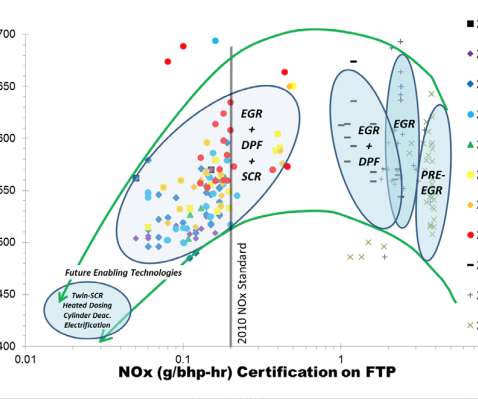New Delphi Technologies 500+ bar GDi system cuts gasoline particulate emissions by up to 50%, reduces fuel consumption
Green Car Congress
MAY 16, 2019
In a paper presented at the 2019 Vienna Motor Symposium this week, Delphi Technologies will unveil a new 500+ bar GDi system that can reduce particulate emissions by up to 50% compared to state-of-the-art 350 bar system without expensive engine design modifications. Delphi 500+ bar GDi pump. Delphi 500+ bar GDi injector.









































Let's personalize your content